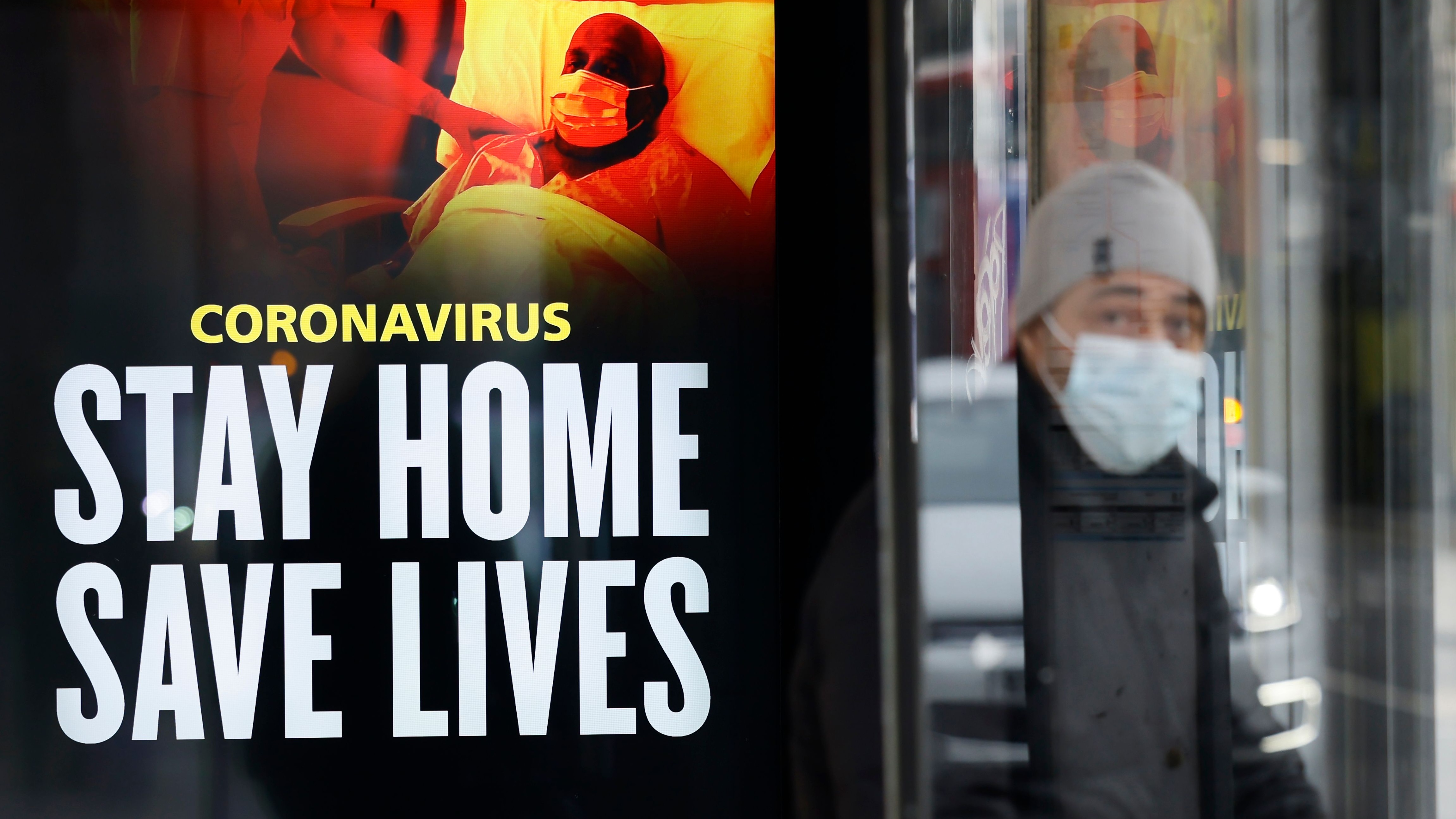Why is half of Britain predicting a lockdown?
Booster vaccine programme has been criticised as moving ‘extremely slowly’ as Covid-19 cases hit a peak of nearly 50,000

A free daily email with the biggest news stories of the day – and the best features from TheWeek.com
You are now subscribed
Your newsletter sign-up was successful
Business Secretary Kwasi Kwarteng this morning ruled out any lockdowns over the winter and urged people to book their Christmas parties, but it seems the general public are not convinced.
A survey by Savanta ComRes found that 49% of British adults think lockdown restrictions will be implemented in the coming months, with fears highest among the over-55s.
As cases hit a peak of 49,156 on Monday, three out of four were concerned about another virus wave this winter, although 55% thought the worst of the pandemic has passed. The UK’s number of cases is significantly outstripping its European neighbours, and on Tuesday deaths hit their highest level since March.
The Week
Escape your echo chamber. Get the facts behind the news, plus analysis from multiple perspectives.

Sign up for The Week's Free Newsletters
From our morning news briefing to a weekly Good News Newsletter, get the best of The Week delivered directly to your inbox.
From our morning news briefing to a weekly Good News Newsletter, get the best of The Week delivered directly to your inbox.
Chris Hopkins, who carried out the survey for Savanta ComRes, said: “While it may feel to many that the UK is out of the woods with coronavirus, there is still an underlying feeling – or perhaps fear ��� among the public that there are more restrictions, including lockdowns, to come.”
Hopkins noted that the “small but significant proportion” – 19% – of the public who feels the worst is still ahead “shows that trust in the vaccine roll-out may still be undermined if the UK enters further restrictions during a winter that will be inevitably challenging for the NHS”.
The poll comes amid accusations that the government roll-out for the booster vaccine is “moving too slowly to protect the most vulnerable”, with figures showing “that fewer than half of those eligible” have received the booster jab, reported The Telegraph.
According to estimates seen by the paper, “22 million people will be ready for their third dose by mid-December” but the slow pace of the programme means that “those most at risk will not be completed until the end of January”.
A free daily email with the biggest news stories of the day – and the best features from TheWeek.com
In September, the government’s scientific advisers recommended that everyone over 50, as well as medical staff and younger adults with medical conditions, should be offered a third dose of a Covid vaccine six months after their second vaccine dose.
Currently, people eligible for a third dose must wait until they are contacted by the NHS before booking a jab – but the delays mean that millions are at risk of “waning immunity”, said the paper.
The slowdown has been based on a number of factors – but the most significant appears to be that GPs, nurses and pharmacists, who administer the “bulk” of the booster jab programme, are also “having to deal with a major flu vaccine roll-out this autumn” as well as an “increase in demand for doctor’s appointments more generally”, said the BBC.
Former chief scientific adviser Sir David King has criticised the pace of the roll-out, describing it as moving “extremely slowly”, as he warned the UK could be facing an extremely serious spike in coronavirus cases over the winter.
“The disease is rising to another peak and this peak could be as serious as the last,” he told Sky News.
The scientist urged the public to keep wearing face masks on public transport and inside buildings, describing it as a “very simple operation” that would help reduce the spread of the disease.
Scientists are also monitoring a descendant of the Delta coronavirus strain that accounts for 10% of new cases in the UK.
Asked on Sky News today if the country could be facing mass quarantine restrictions, the business secretary said: “I would rule that out.” And on Times Radio, he said he would “absolutely” give people the go-ahead to book and spend money on a Christmas party.
No. 10 said it was keeping a “very close watch on the latest statistics”, but that it “always knew the coming months would be challenging”.
“What we are seeing is case rates, hospitalisations and deaths still broadly in line with the modelling as set out a few months back now,” said the prime minister's spokesperson. “But it is thanks to our vaccination programme that we are able to substantially break the link between cases, hospitalisations and deaths.”
Tom Whipple in The Times agreed: “We won’t lock down again, not in the 2020 sense. Schools will never again close en masse.”
But he questions whether lesser policies might be enacted. “Anyone who says that they know for certain that we have seen the end of the Downing Street briefing, and Whitty’s stern I’m-doing-this-for-your-own-good face, is lying: our future is as unpredictable as ever.”
-
 How Democrats are turning DOJ lemons into partisan lemonade
How Democrats are turning DOJ lemons into partisan lemonadeTODAY’S BIG QUESTION As the Trump administration continues to try — and fail — at indicting its political enemies, Democratic lawmakers have begun seizing the moment for themselves
-
 ICE’s new targets post-Minnesota retreat
ICE’s new targets post-Minnesota retreatIn the Spotlight Several cities are reportedly on ICE’s list for immigration crackdowns
-
 ‘Those rights don’t exist to protect criminals’
‘Those rights don’t exist to protect criminals’Instant Opinion Opinion, comment and editorials of the day
-
 A Nipah virus outbreak in India has brought back Covid-era surveillance
A Nipah virus outbreak in India has brought back Covid-era surveillanceUnder the radar The disease can spread through animals and humans
-
 Is the US about to lose its measles elimination status?
Is the US about to lose its measles elimination status?Today's Big Question Cases are skyrocketing
-
 Covid-19 mRNA vaccines could help fight cancer
Covid-19 mRNA vaccines could help fight cancerUnder the radar They boost the immune system
-
 Is this the end of ultraprocessed foods?
Is this the end of ultraprocessed foods?Today's Big Question California law and the MAHA movement are on the same track
-
 Can TrumpRx really lower drug prices?
Can TrumpRx really lower drug prices?Today’s Big Question Pfizer’s deal with Trump sent drugmaker stocks higher
-
 The new Stratus Covid strain – and why it’s on the rise
The new Stratus Covid strain – and why it’s on the riseThe Explainer ‘No evidence’ new variant is more dangerous or that vaccines won’t work against it, say UK health experts
-
 RFK Jr. vaccine panel advises restricting MMRV shot
RFK Jr. vaccine panel advises restricting MMRV shotSpeed Read The committee voted to restrict access to a childhood vaccine against chickenpox
-
 RFK Jr. scraps Covid shots for pregnant women, kids
RFK Jr. scraps Covid shots for pregnant women, kidsSpeed Read The Health Secretary announced a policy change without informing CDC officials